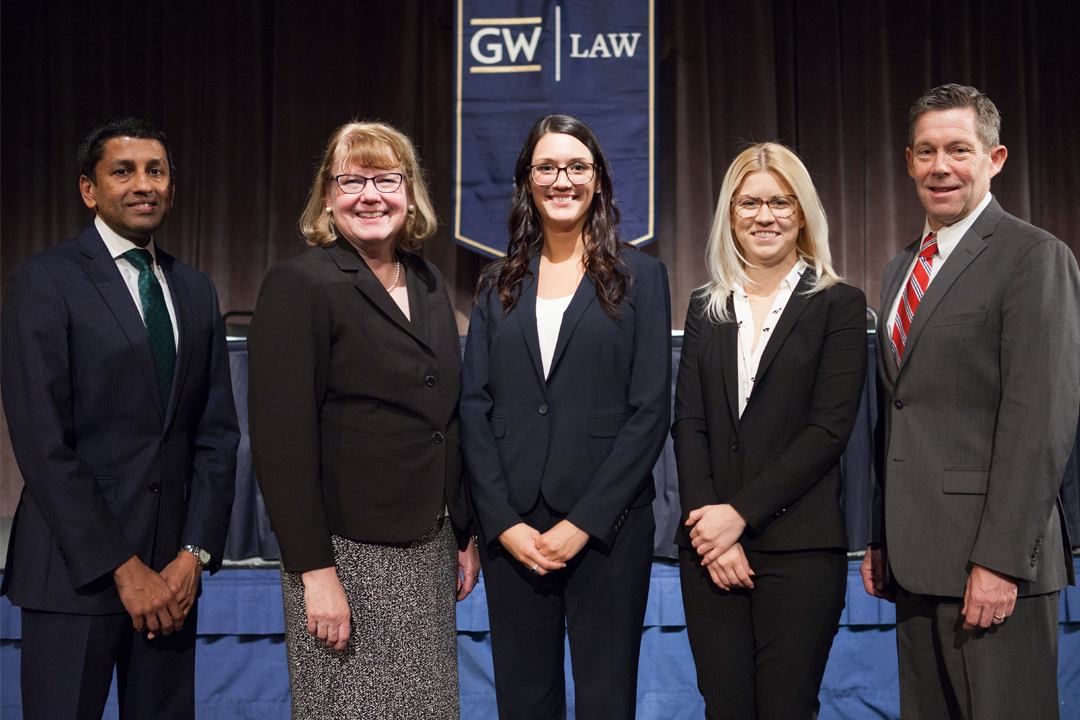The 68th Van Vleck Constitutional Law Moot Court Competition Finals were held in the Marvin Center Betts Theatre on Thursday, January 25. The finalists, all of whom are 3Ls, argued before a bench featuring Judges Jeffrey Sutton, United States Court of Appeals for the Sixth Circuit, Sri Srinivasan, United States Court of Appeals for the District of Columbia Circuit, and Allison Eid, United States Court of Appeals for the Tenth Circuit. Rachael Padgett and Kelsey Pelagalli, representing the petitioners, argued against Katherine Grabar and Mallory Kruper for the respondents. Ms. Padgett and Ms. Pelagalli were named the winners of the competition.
This year's problem concerned civil asset forfeiture. Police departments and prosecutors use civil asset forfeiture as an alternative means to fight crime by stripping criminal actors of their resources. The fictional situation that the finalists dealt with involved a mother, Katya Zamo, and her son, Chad Michaels—the petitioners. Their property, which included a car and firearm, were claimed by the State when police officers pulled over Petitioner Michaels for a broken taillight. They ran his license and discovered that he was previously arrested for selling drugs. During a search of his car, they found cash, as well as a loaded gun registered to Petitioner Zamo. Consequently, the officers seized the gun and the cash and impounded the vehicle because Petitioner Michaels did not share the same last name as the owner. The petitioners filed a lawsuit against the State's Attorney for New Columbia.
"The argument we made overall was that the fictional state of New Columbia's Civil Forfeiture Act violated property owners' procedural due process rights facially, and that its disproportionate allocation of the burden of proof also effectively violated one of the petitioners' right to his privilege against self-incrimination as applied," Ms. Padgett said. "Specifically, I argued that the State, rather than property owners, was constitutionally required to initiate formal proceedings in civil court, and that the statute was structured in such a way as to unfairly cause many property owners to procedurally default on their claims before they had the opportunity to be heard before a neutral decision-maker at a formal hearing."
Ms. Padgett explained that their brief writing and the strong team work were the factors that led the team to victory, saying, "We were very prepared for hypotheticals…It was actually exciting to engage with the judges, because you could tell they knew the problem really well and were interested in the hypothetical statute's effect and implications."
This marks the third consecutive year of an all-female Van Vleck Final.


